Henry Priestman - Interview
by Benjamin Howarth
published: 3 / 4 / 2014
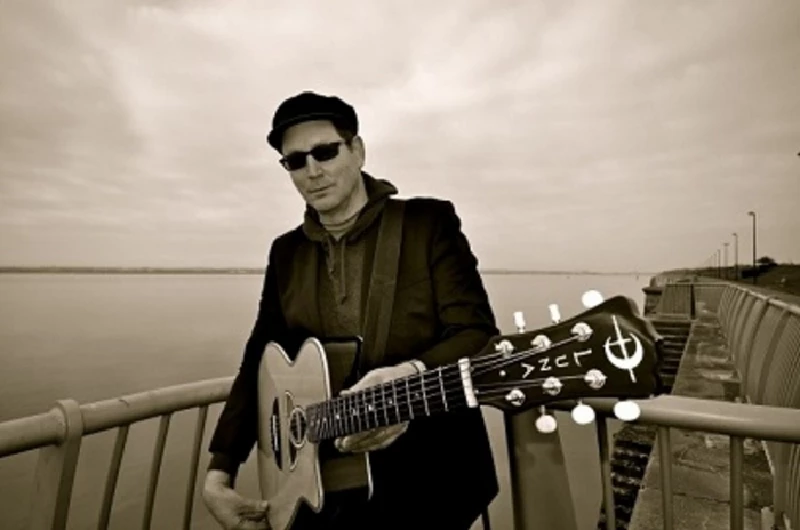
intro
Ben Howarth talks to Henry Priestman, the much acclaimed main songwriter and former keyboardist with the Christians, about his new career as solo artist and second album, 'The Last Mad Surge of Youth'
Very few people take up singing and release their first solo album in their mid-50s. Even fewer people manage to sell any copies of that album. And only one, to my knowledge, has ended up having a national radio hit. When 'Grey’s The New Blonde' found itself on the Radio Two playlist in 2009, it marked an unexpected twist in an already unusual musical career for Henry Priestman. He had not sung since the break-up of his first band (cult post-punk outfit Yachts), but his big musical break came when he joined the Christians. Although the band’s public face will always be singer Gary Christian, Priestman wrote every song on the band’s 1987 eponymous debut album. It reached #2 on the UK album charts, sold more than a million copies and helped the band play at Wembley. Later, Priestman became a songwriter for hire – working with Take That man Mark Own and composing music for BBC wildlife documentaries, the James Bond Xbox song and the title song for the musical 'Dreamboats and Petticoats'. Having been persuaded to sing some of his songs himself, Priestman released his first solo album, 'The Chronicles of Modern Life' in 2009, hoping that it may sell a few hundred copies. Instead, the album was picked up by Island Records, and the first single became a favourite at Radio Two. Struck by the unexpected success, Priestman initially planned a swift follow up. However, faced with the deaths of both his mother and his mother-in-law within a few months, he found himself wanted to release a very different second album. 'The Last Mad Surge of Youth' does not entirely reinvent the successful formula of the debut, but it contains a broader range of material – from ballads about family life to self-proclaimed ‘rants’ about the state of modern politics. It’s a bolder, richer and, to be frank, better record than his debut – even if it doesn’t contain an obvious radio hit. A few weeks after its release, I called Priestman – he had a few hours to kill in Birmingham Travelodge – to ask about his new record. PB: To begin, your second solo album has been out for three weeks or so now, and from the looks of it, has been getting a good reception. HP: Oh, amazing. I can't believe the reviews – the best I've had in 37 years of putting out records (as they were called when I started!). I initially thought I was going to end up releasing it on my own label, and the plan was to get it out quickly – maybe by September. And then a new label got interested. Proper Records has asked a mutual friend if he knew of any interesting music that was in the pipeline, and he suggested me. I initially thought that I would still do it myself – why give away fifty per cent? But then I met them, and they were so enthusiastic, so it seemed right. Plus, it frees up my head to concentrate on the things I like doing – especially live performances and artwork. PB: I assume that the relationship with Proper is one where they release the album that you want released – they weren't involved in the making of the album? HP: No, they hadn't heard it at that point. I had a pretty good idea of what I wanted from the artwork, as well. But from there, it was mutually supportive. We all agreed on how we wanted to present the record, what songs we wanted to go to radio – not that it's done much good! But I don't care about that – to get those reviews makes it worthwhile. I finished it in August last year. I just could not hear if it was any good or a pile of crap. You get so close to it. It was after Christmas that I finally started to think, “Hey, it's not bad this album”. So much so that I now have no idea how the hell I am going to follow this one up. What is so gratifying is that reviewers seem to be 'getting' the songs. I think it was 'Q' who said that it was sad and poignant at times, but it's not despondent. I really appreciate that, it's not. There's always hope. For every song like 'At The End of the Day', which I wrote for my mum, two weeks before she died, there is a song like 'True Believer', which has a hopeful message. All my favourite albums have highs and lows in them – Lou Reed's 'Berlin' is my favourite album of all time. That's a cut your wrists album – and I love it. It's bleak, but I find it incredibly beautiful. It's so inspirational, that album. Maybe it's the fact that there is someone out there going through an even worse time that you! PB: One of my favourite moments on your album is the breakdown in the title track, when you seem to push your voice to sing “I'm the saddest man alive” - there is something cathartic about the way you sing it. The impression is that it is you coming to terms with grief, but already moving on. HP: The idea is that you dust yourself down, and carry on. That was one of the last songs written for the album. I had the title before I had the track. I wanted it to be the title of the album, 'The Last Mad Surge of Youth', but then I realised it could make for a great track too – so then I had to write it! I wanted that slightly melancholic horn part at the start to get people ready for the fact it wasn't just going to be an upbeat, pop album. Especially for people who know my history – those who know me as someone who sold however many million albums with the Christians. In fact, the brass part had been recorded to be a backing track, but I was listening to it on its own, and I liked it so much I decided it needed to be given its own space as an introduction. PB: As you mentioned your old band, I was wondering if you think many Christians fans have followed your solo work. Or are you getting a new audience? HP: Oh, I'm definitely getting a new audience. I mean, some people have stayed with me – but Gary Christian was the main face, and my name means nothing to most people. I play two or three Christians songs, but they aren't encores. Not that I’m rude to them! There are always a few cheers when I mention the Christians, which is nice. But I perform them completely differently – because obviously I never sang them at the time. And a song like 'Forgotten Town' is still relevant today – and there has been a political edge to both of my solo albums, so it fits in. So much so, I think I may put it on my next album. Reclaiming it, as it were. PB: Aside from that, what other songs that you have written especially stand out? HP: Oh, bloody hell... PB: I know, a tough question! HP: You see, I've had hits. But I equally enjoy singing songs like 'Old' and 'Valentine's Day'. There are so many... 'We Used To Be You' is going down really well. People seem to be really getting what that is about (a parent seeing their children grow up and move away – PB). I suppose these solo songs mean a bit more to me. Before, they were always songs for someone else to sing - musically and lyrically. Now, they are for me – also, I think I make them a bit easier for me to sing! PB: You've said that you've discovered a new-found love of playing live – that you've taken to performing solo in a way you never expected. HP: I love it. I suppose it's because it's on my terms. I'm quite shambolic, and I never rehearse as such, but I like how that makes it. I spoke to a promoter recently who said that, now that I'm better established, it was time I went to the next level. But I like it at this level – I would have to get good if I went to the next level. I'd need to be slick and shiny! Now, it's just me and a guitarist, up and down the motorway with a ukulele and a guitar, and having the time of our lives. Actually, I've just done a video for 'True Believer', and I did it with Pete Riley, who co-wrote it with me on guitar, and Jinder, my other guitarist. We did the video at a house gig – a genuine house gig. I'm really getting into doing those. I'm hoping that people will see the video, and think that they could do their own house gigs too. They are just such fun. And the best thing about it is, I can have a joke with people and then still take it down, and do the song about my mum, and people will listen. I'm deadly serious about it – but, at the end, I can still get people up on their feet. Even with just a ukulele and a guitar. It's the most fun I've had gigging in my life. In fact, it's one of the most fun things I done, per se. PB: When did you first start doing house gigs? HP: A while ago, someone wanted to book me to do one. I thought, “Why would I want to do that?” It seemed weird, being so close to people and having to mingle with them at half time, when the garlic bread comes out. But, after I did the first one, I thought, “This is fantastic!” There's no PA, it's just like having a sing-song. Which, in a way, is how we all came in – it's taking the family sing-song around a piano to another level. Also, they are so enjoyable because everyone comes in a great mood – they don't just say, “Go on, impress me.” The audience varies a little bit. The first house gig I did in my recent one was perhaps closer to a concert than a party. People invite people who they know are music fans, and they sit down and watch. Some are parties – and I have to say then that I'm not going to do famous songs, and that people can talk through me if they want, but I'd rather they didn't. But even when they are more like concerts, they still have a more relaxed attitude – people can bring their own drinks, and they can have some food. I think they work for me, because I do talk. I had a review in 'Word' Magazine – I loved that magazine, such a shame it ended – and the review began, “Blimey, Henry Priestman can't half talk”. I decided to take that as a compliment – they didn't really mean it as a criticism. But I do like to talk. I think it is good to explain the songs. The other day, I even got a dog up on stage. It was in a proper gig, this. A pub gig, up in Skipton in Yorkshire. I said, “Is that a dog? Get him up on stage.” That was a Facebook moment, if ever there was one. PB: When you play live, it's just you. But on the album, there are strings and horns on almost every track. How did you organise all of that, and who was involved? HP: 98% of the time, it was me on my own in the studio going slightly bonkers – producer, engineer and player, trying to do everything at once. Testing my fading eyesight to see what the LED screens are showing at the other side of the room,. Is it going into the red or not? Then the fiddle on the album is played by Katriona Gilmore, who is doing really well – she's been nominated in the BBC Radio Two folk awards and Pip Jopling, who is from Skipton. They both had their own recording set ups, so were able to record their parts and send them to me. The same happened with Probyn Gregory, who plays in Brian Wilson's band and was on the Beach Boys reunion tour, and Graham Gouldman – who was in 10CC. That's amazing to have them on the album – I mean, Graham Gouldman is one of the greatest songwriters of all time. They are all friends and acquaintances – a pedal steel player in Norfolk, a cellist in Glasgow, a brass player in Leeds. Fantastic – all these people sending in parts. But I love making albums like that. You have the chance to play with songs – for example, 'The Last Mad Surge of Youth' was slowed right down. It started off as almost a Liverpool jangle-pop song. So then I had take the recordings the other musicians had done and slow them down to fit the new version, but that doesn't matter. PB: And what about the choir – it’s a school gospel choir, right? Well, I actually performed with the choir on BBC’s 'Look North' a few days ago. I met them as part of the workshops I do in schools – where I work with kids and try and show them what songwriting is like. I'm doing the workshop tomorrow, actually. I'll be doing one with 120 5-11 year olds. I'd worked with this school for the last five years, and I plucked up the courage to ask the gospel choir if they would sing one of my songs, while they practised at lunch time. Someone posted it online, and I thought it was so good – I just had to have them on the album. PB: Have you become more confident singing? You’ve said that you took some persuading to actually sing your own songs… HP: The first songs I did for the first album were intended for other people. Eventually, I was persuaded to sing them myself – and those demo versions were the base of the album. There are actually some versions of the songs on the first album out on the net under the name 'Robert King and the Fallen Angels'. I was too scared to use my own name at first. So I created this fictitious alter-ego. I think with the earliest songs, I was hiding behind a voice – I created a voice with an American accent, as I called it, the 'bad Bob Dylan' voice. Now, I have a bit more confidence to sing in my own accent, with my own voice. I think I am singing better, as a result. Remember, I think the last time I had sung before this was in 1981, so that was a long time not to sing. I only sang in my first band Yachts because the singer left. But now, I love it. I still think I have a crap voice – but it's a crap voice with character! PB: With that first album, what was the point where those songs stopped being demos, and you thought, “No I am actually going to do this – release under my own name, and tour”? HP: There was a point when we had a few songs that seemed like a body of work – they seemed to hang together. I wrote them with my friend Tom Gilbert, and we just thought, “Hang on, let's carry on writing.” We wrote three songs a day, some days. We did the whole thing over a three week period – either I'd go down to London or he'd come out up to me. We did the two songs that ended up coming out as singles on the same day. We reached a point where we realised that it sounded like a complete album. But, I must admit, after it was all done, it took me at least six weeks to decide that it was OK. I really didn't know if it was good or not. And then the same thing happened this time. But, I think now I know that, if that's going to happen every time, I can deal with it. PB: What sorts of expectations did you have for it at that time? HP: I thought, at best, it would sell a few hundred copies on my MySpace. I thought maybe some of the Christians fans might seek it out. But I ended up signing to Stiff, then re-signing to Island – crazy, the first two labels I was on with my old bands. And then I was on BBC Breakfast and on Radio 2's playlist. I mean, we were very lucky – it was the right time. Steve Wright, Terry Wogan and especially Johnny Walker, he was the one who fell in love with the album and gave it the initial impetus. I suppose it was slightly poppier than this new one – and I am aware that this isn't getting the airplay that the first one did. But I don't mind, in a way, because it's a different kind of album. It probably doesn't fit in. It's funny though. 'The Folk Show' think it's not folk enough for them, but the mainstream shows probably think it is too folky. But, I think this establishes me as a 'proper' solo artist. I'm sure there were people who thought with the first one that I was a producer first, and that I was just doing my own music for fun, not taking it seriously. I have to admit, I did initially think that I would just release it and go back to producing. It was my manager who said, when it started to do well, that I would need to go out on the road. I thought, “You what? I'm a keyboard player. I go side of stage, head down, glasses on.” I had to learn how to be a frontman, how to play guitar properly. But I must admit, I love it now. PB: Are you still producing other artists? HP: I haven't had time! I did some writing the other day for a new band, the Little Blue Numbers. They are a little bit like Gillian Welch/David Rawlings meets the Everly Brothers – it's all harmonies. So that was really exciting. It is the two people who wrote 'At The End of the Day' with me, and they are now doing their own project – it was great. I realised it was the first writing I had done for someone else in ages. I've had a few other requests, but I keep getting more requests for gigs as well. I think the earliest I can do anything is July. The same for production, I am loath to take something on until my own album quietens down, because you need to be able to devote several months to it. I'd miss my gigging now – which if you'd told me that six years ago, I wouldn't have believed it. “Me? Gigging!” I've slightly fallen out of love with the studio. But, I got it back slightly on my journey down the M6 today – I got an idea for my next album. I was a 'gun for hire' from 1996 to 2006. During that time I wrote for loads of other people. Most of these songs never get heard. The albums don't come out or they are not used. So, I think an idea for the next record would be to reclaim those songs. But, to be honest, my head is currently completely in gigging and promotion. I've done three videos for this album – they've turned out really well. I've never enjoyed videos before. We always thought that the best one we did with the Christians was 'Harvest for the World', because we weren't in it. In those days, they wanted us to act, which we couldn't do – all those meaningful looks to camera. The videos I do now are just natural settings, and for the first time in my life, I am enjoying them. PB: Before we finish, I wanted to ask a bit more about the songwriting workshops. I don't know of anyone else doing anything similar... HP: I think someone said that there is no-one with my experience – I've sold several million albums – doing this kind of thing. Some people have even said I shouldn't do them, that it would be bad for my reputation. But I love doing them. Tomorrow, when I get in front of those 120 kids, I will start with 'True Believer', and get them singing the chorus. It was great when I started that it coincided with the 2012 Olympics, so I changed the lyrics to one of the songs from my first album to “The Olympics are here, happen every four years…”, gave the kids that as an introduction, and then they could take those and write their own songs. I was able to run with the Olympics for quite a long time, but I've changed it since. I will be doing an anti-bullying song tomorrow. It's easy to sing – and it doesn't rely on the kids to be able to play music. By the end, all the kids are normally singing my song with their own words - great fun. I also show them the music I did for 'Wildlife At One' – the kids all like seeing the monkeys and the elephants. I can also have a laugh at my own expense, which is mainly for the teachers – like pointing out that all the hair I had in the Christians videos has gone now. I also do workshops with music schools, and they can be a bit different. I will usually look at some of my songs that have been hits, and play early versions of them. Show how I wrote them and how the songs developed. Sometimes, when they write their own songs, I can be a 'song doctor'. I suggest little chord changes, lyrics. It's really exciting. I didn't write my first song until I was 21, but some of them come up with really interesting ideas, and I think “They’re only 15”. Incredible. PB: Thank you.
Band Links:-
https://www.facebook.com/henrypriestmanhttp://www.henrypriestman.com/
https://twitter.com/henrypriestman
Picture Gallery:-
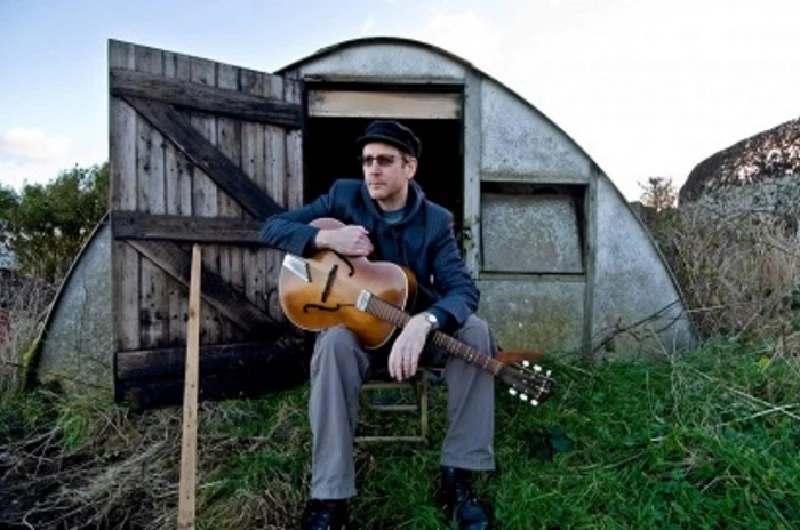
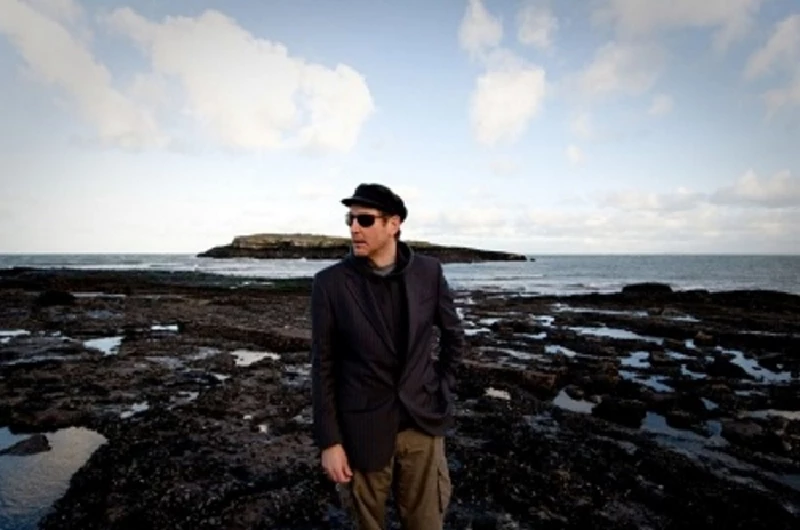
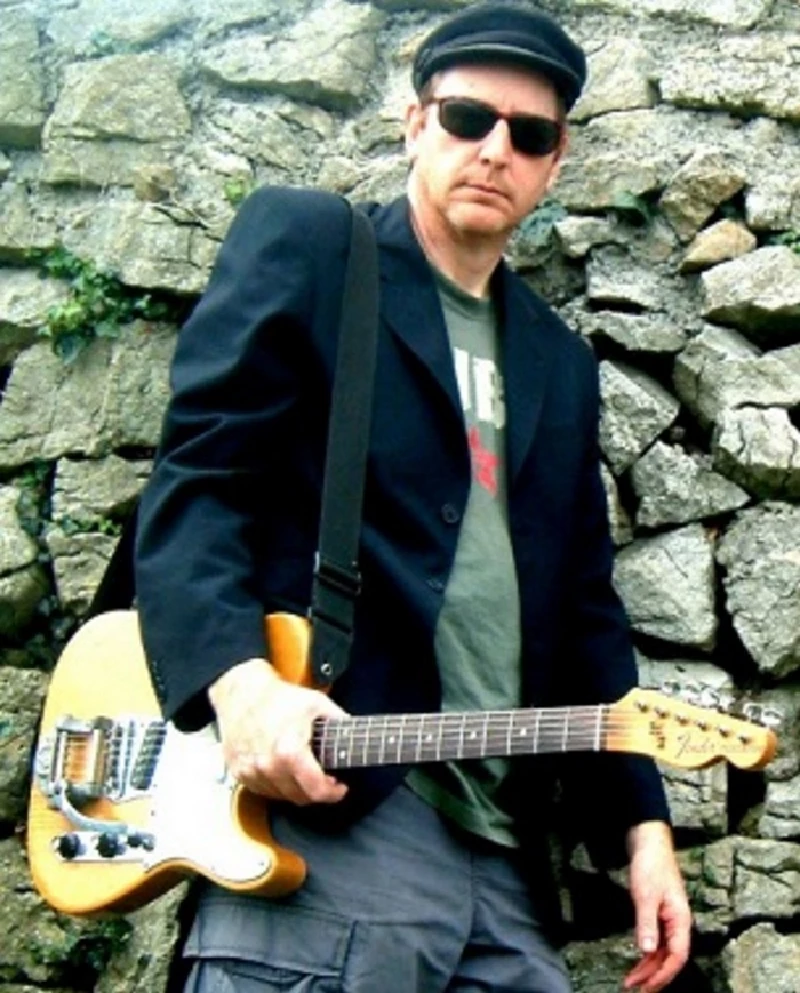
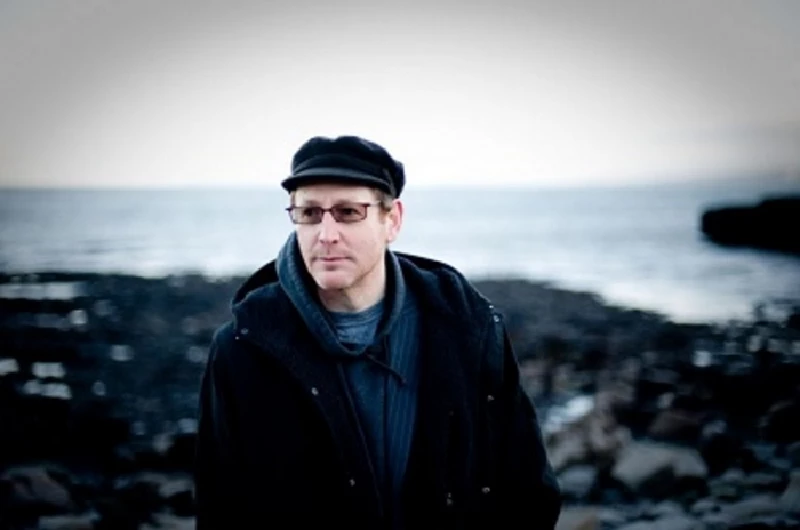
soundcloud
reviews |
|
The Last Mad Surge of Youth (2014) |
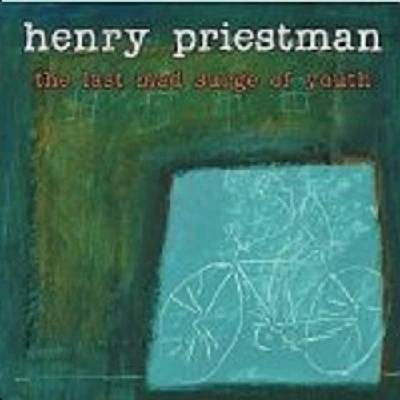
|
| Thoughtful but warm-spirited second solo album from former Christians member, Henry Priestman |
most viewed articles
current edition
Carl Ewens - David Bowie 1964 to 1982 On Track: Every Album, Every SongArmory Show - Interview with Richard Jobson
John McKay - Interview
Colin Blunstone - Thalia Hall, Chicago, 16/7/2025
Bathers - Photoscapes 1
Billie Eilish - O2 Arena, London, 10/7/2025
Loft - Interview
Visor Fest - Valencia, Spain, 26/9/2025...27/9/2025
Sir Tim Rice - Interview
Robert Forster - Interview
previous editions
Manic Street Preachers - (Gig of a Lifetime) Millennium Stadium, Cardiff, December 1999Heavenly - P.U.N.K. Girl EP
Beautiful South - Ten Songs That Made Me Love...
Oasis - Oasis, Earl's Court, London, 1995
Peter Perrett - In Dreams Begin Responsibilities Interview Part One
Boomtown Rats - Ten Songs That Made Me Love....
Coldplay - Wembley Arena. London, 16/8/2022
Prolapse - Interview
Pixies - Ten Songs That Made Me Love...
Trudie Myerscough-Harris - Interview
most viewed reviews
current edition
Davey Woodward - Mumbo in the JumboSick Man of Europe - The Sick Man of Europe
Lucy Spraggan - Other Sides of the Moon
Amy Macdonald - Is This What You've Been Waiting For?
Phew, Erika Kobayashi,, Dieter Moebius - Radium Girls
Suzanne Vega - Flying With Angels
Bush - I Beat Loneliness
Alice Cooper - The Revenge of Alice Cooper
Cynthia Erivo - I Forgive You
Blueboy - 2
Pennyblackmusic Regular Contributors
Adrian Janes
Amanda J. Window
Andrew Twambley
Anthony Dhanendran
Benjamin Howarth
Cila Warncke
Daniel Cressey
Darren Aston
Dastardly
Dave Goodwin
Denzil Watson
Dominic B. Simpson
Eoghan Lyng
Fiona Hutchings
Harry Sherriff
Helen Tipping
Jamie Rowland
John Clarkson
Julie Cruickshank
Kimberly Bright
Lisa Torem
Maarten Schiethart